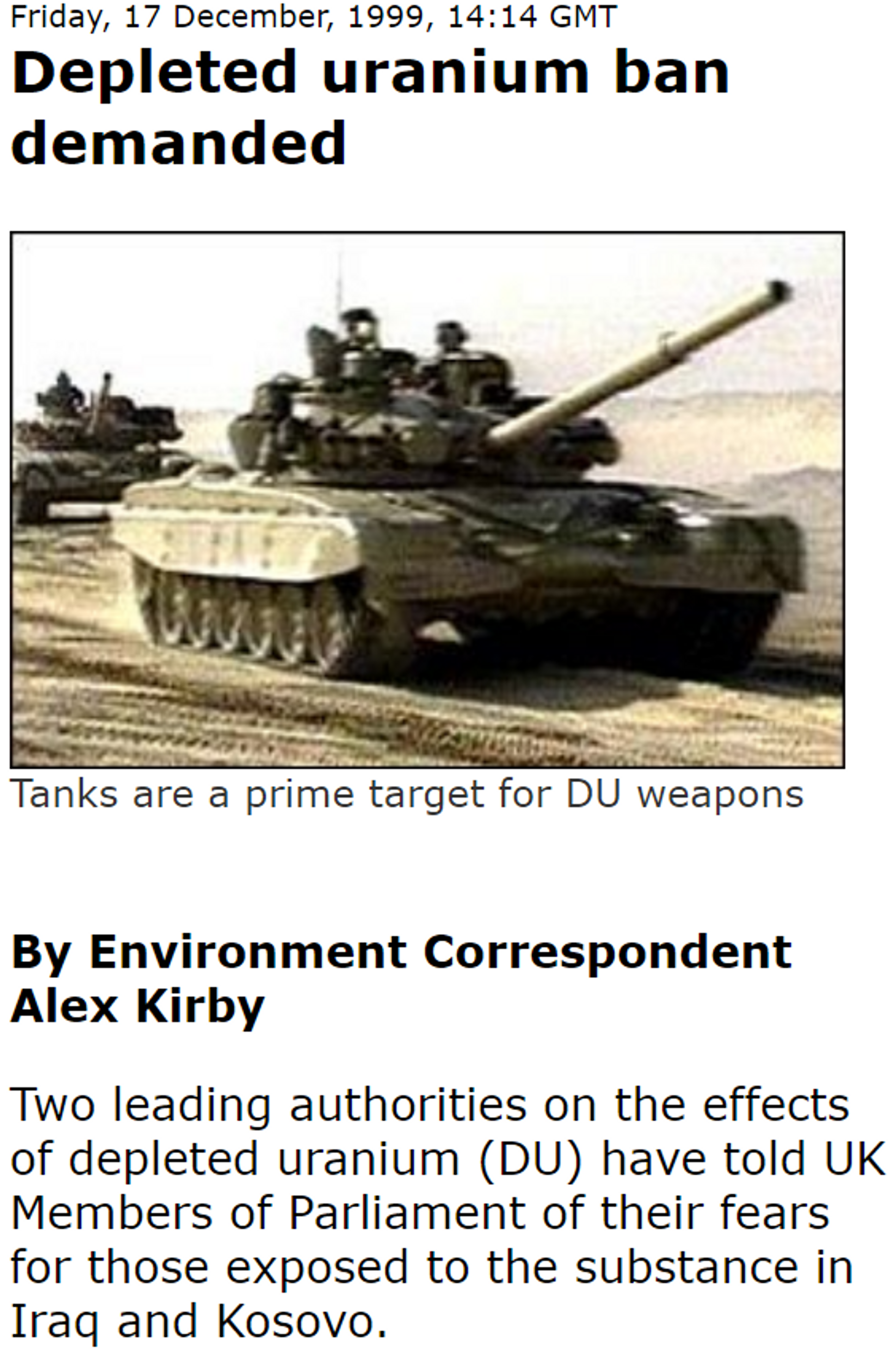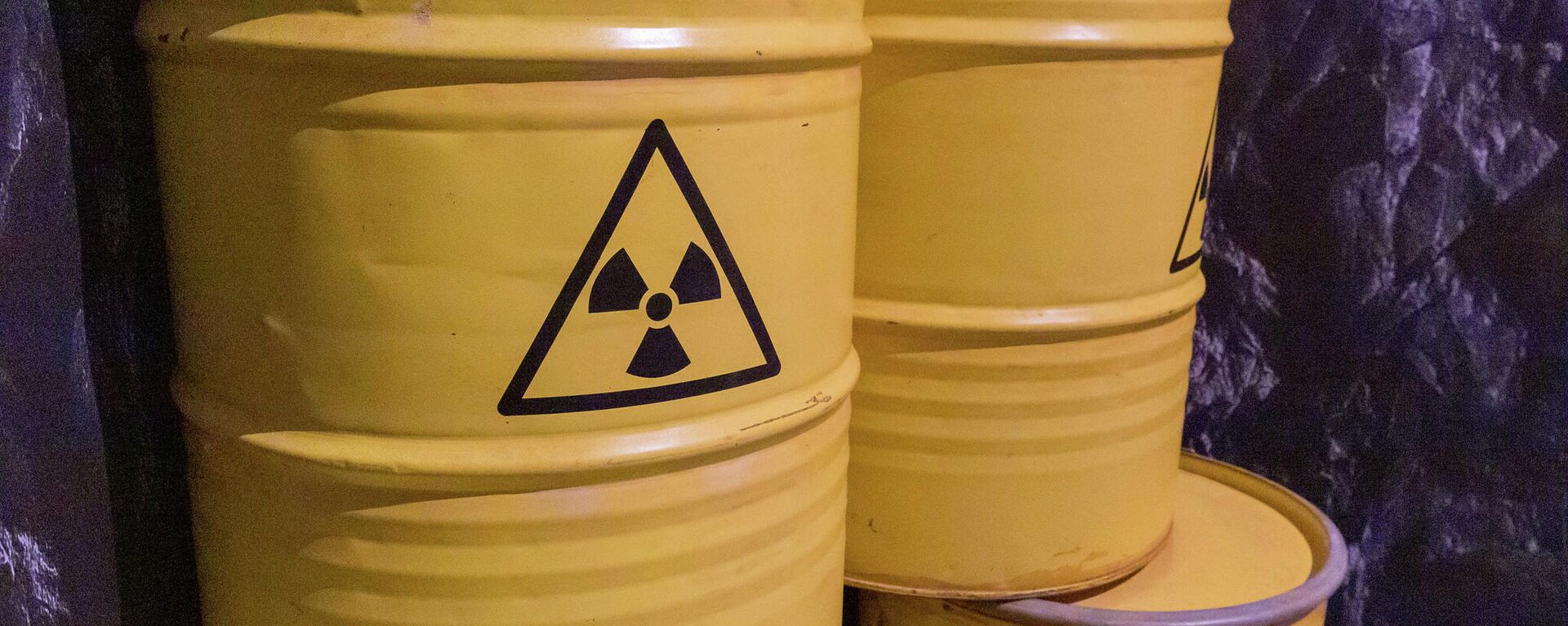British Media Downplays Risks of Depleted Uranium Ammo Now That Russians Are the Target
16:19 GMT 22.03.2023 (Updated: 15:26 GMT 28.05.2023)

CC0 / /
Subscribe
Evidence has been mounting since the 1991 Gulf War that depleted uranium ammunition used by US forces and their allies causes cancer and birth defects. But now the same Western media that helped expose the risks is downplaying them as Ukraine is set to receive DU weapons.
The British mainstream media has abruptly changed its tune on the risks of depleted uranium (DU) munitions after the government announced it was sending them to Ukraine for use against Russian troops.
Junior Defence Minister Baroness Annabel Goldie confirmed to the House of Lords on Tuesday that the Ministry of Defence would supply Ukraine with 120m-calibre DU armour-piercing fin-stabilized discarding sabot (APFSDS) sub-calibre projectiles for the 14 Challenger 2 tanks it has pledged to Kiev.
Moscow warned that the move was a major escalation in NATO's proxy conflict with Russia that took the world one step closer to nuclear war.
"I can only say this: We are running out of red lines," said Russian Defence Minister Sergey Shoigu. "Another line has been crossed and there are fewer and fewer of them left."
President Vladimir Putin later noted that "the West really decided to fight Russia to the last Ukrainian, not in words, but in deed," and that Russia would be forced to "react accordingly" since "the collective West is already starting to use weapons with a nuclear component."
"The use of depleted uranium ammunition will dramatically reduce, or maybe even not preserve at all Ukraine's ability to produce high-quality uninfected food," warned Foreign Affairs Minister Sergey Lavrov. "As for our reaction, of course, we will take this into account in determining our actions."
But a report on the British Broadcasting Corporation (BBC) website repeated the British MoD's insistence that Russia was "deliberately trying to disinform" and that "any impact to personal health and the environment from the use of depleted uranium munitions is likely to be low."
The state broadcaster quoted former British army tank commander Colonel Hamish de Breton-Gordon, who said it was "laughable" to link DU — a by-product of uranium enrichment to weapons grade and of the spent nuclear reactor fuel that also contains weaponizable plutonium — to nuclear weapons.
De Breton-Gordon called Putin's warning "classic disinformation" before claiming that the British DU tank rounds "contained only trace elements of depleted uranium."
That was in contrast to the BBC's previous extensive reporting on the threats to heath from the radioactive and carcinogenic DU rounds.
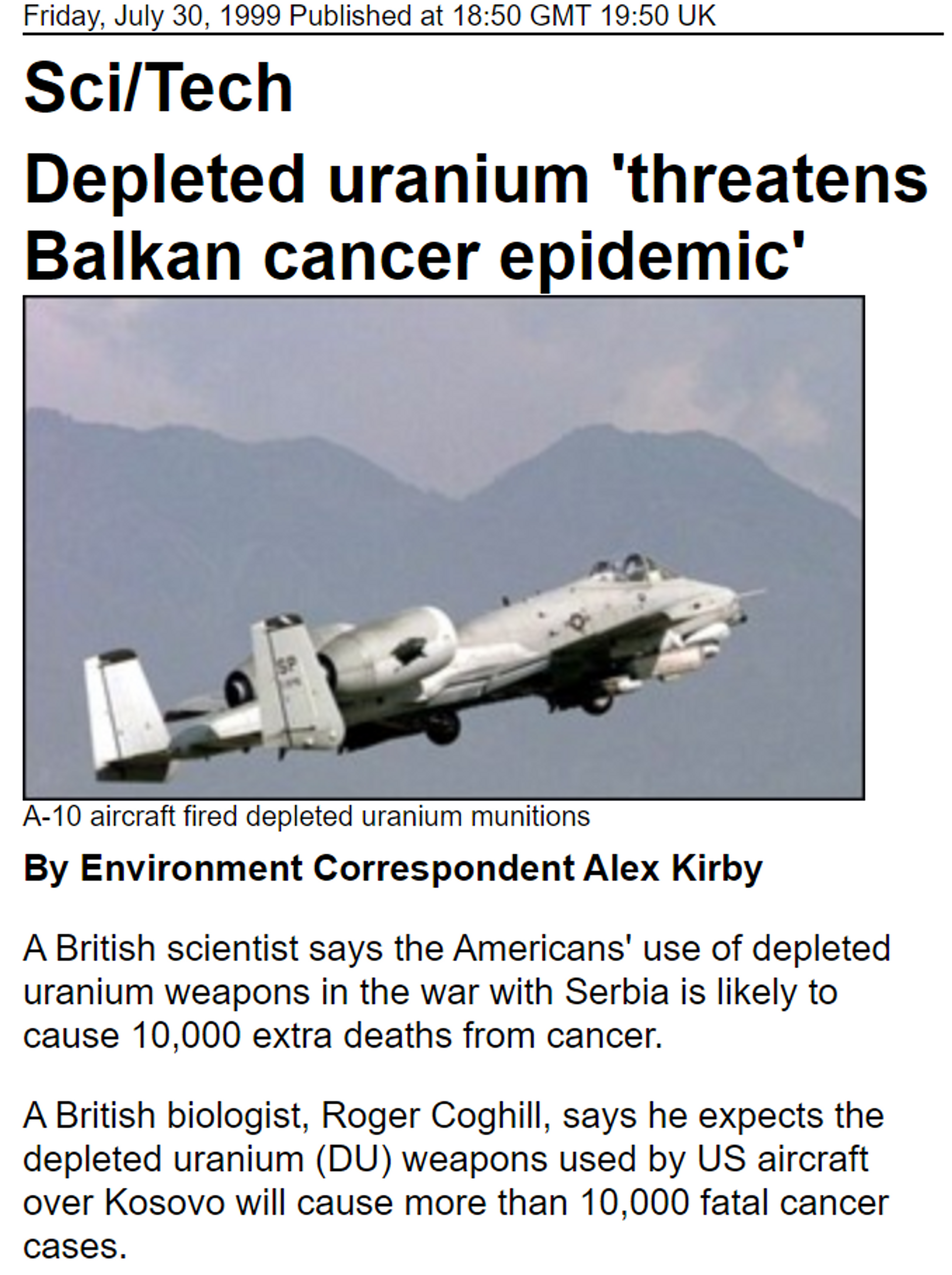
A BBC report from 1999 on the effects of depleted uranium munitions used in the 1999 Kosovo War and the 1991 Gulf War
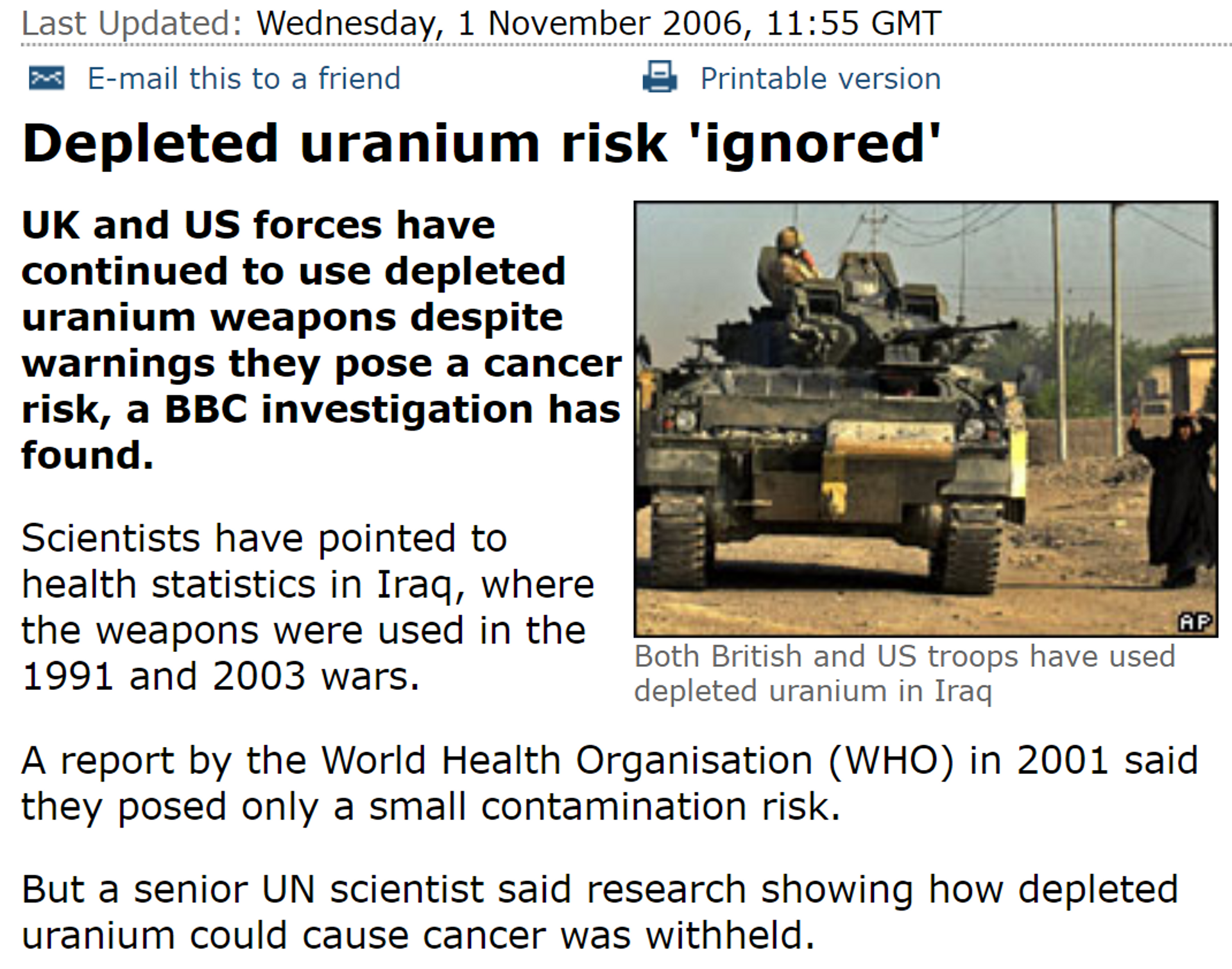
A BBC report from 2006 on the effects of depleted uranium munitions used in the 1991 and 2003 wars with Iraq on NATO troops
© BBC
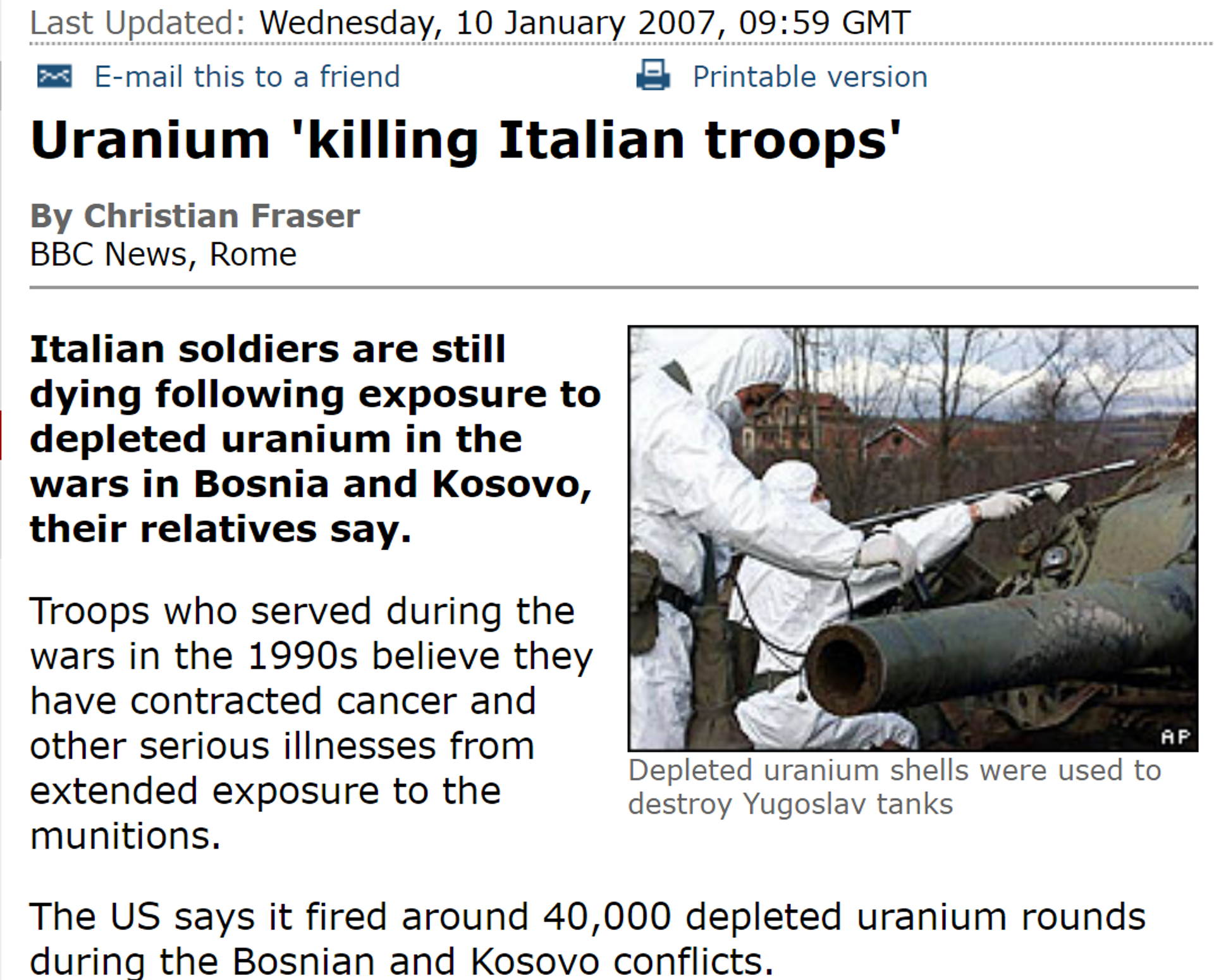
A BBC report from 2007 on the effects of depleted uranium munitions used in the Balkan wars of the 1990s on NATO troops
Moralistic Guardians
200-year-old Liberal newspaper The Guardian has also exposed the dangers of DU munitions for decades — but this week tried to downplay Russia's concerns.
Its report on Tuesday, the title claimed Vladimir Putin merely "sought to exploit a British statement that it would supply Ukraine with tank shells made with depleted uranium."
The Guardian's Kiev-based defence and security editor Dan Sabbagh implied that Putin only responded to the British junior defence minister's statement after it "began to circulate on Russian social media channels."
"The Russian leader frequently makes nuclear-related threats, largely in an effort to persuade western countries to limit their interventions in the war in Ukraine, which was started by Moscow’s invasion last year," Sabbagh wrote.
The article, co-authored by aptly-named science editor Ian Sample, also quoted the MoD claim that depleted uranium "has nothing to do with nuclear weapons and capabilities."
It went on to downplay the same concerns about the munitions' radioactivity and toxicity that the paper has highlighted in the past.
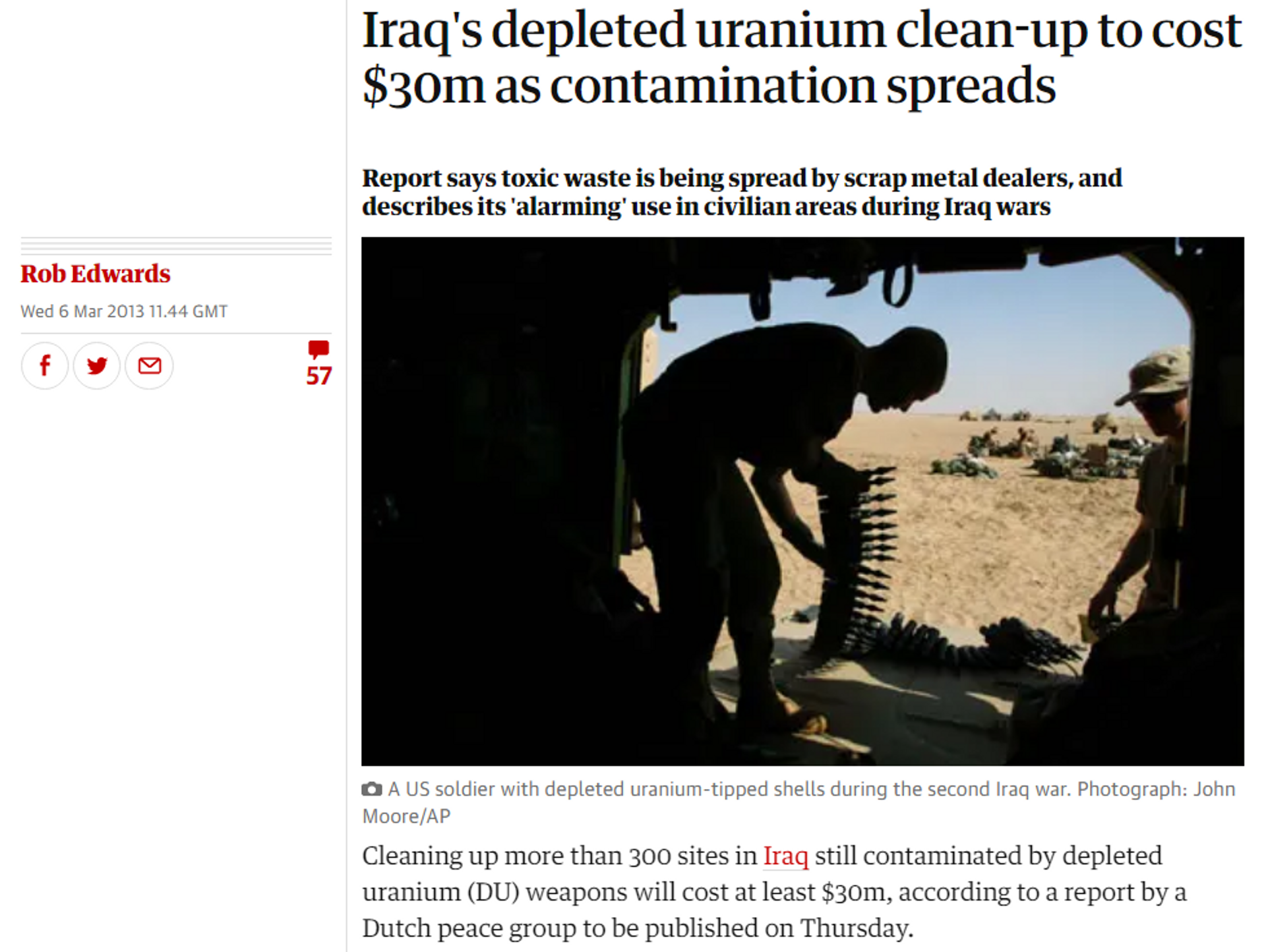
A report in British newspaper The Guardian from 2013 on the contamination of Iraq with depleted uranium munitions used by the US-led occupation forces
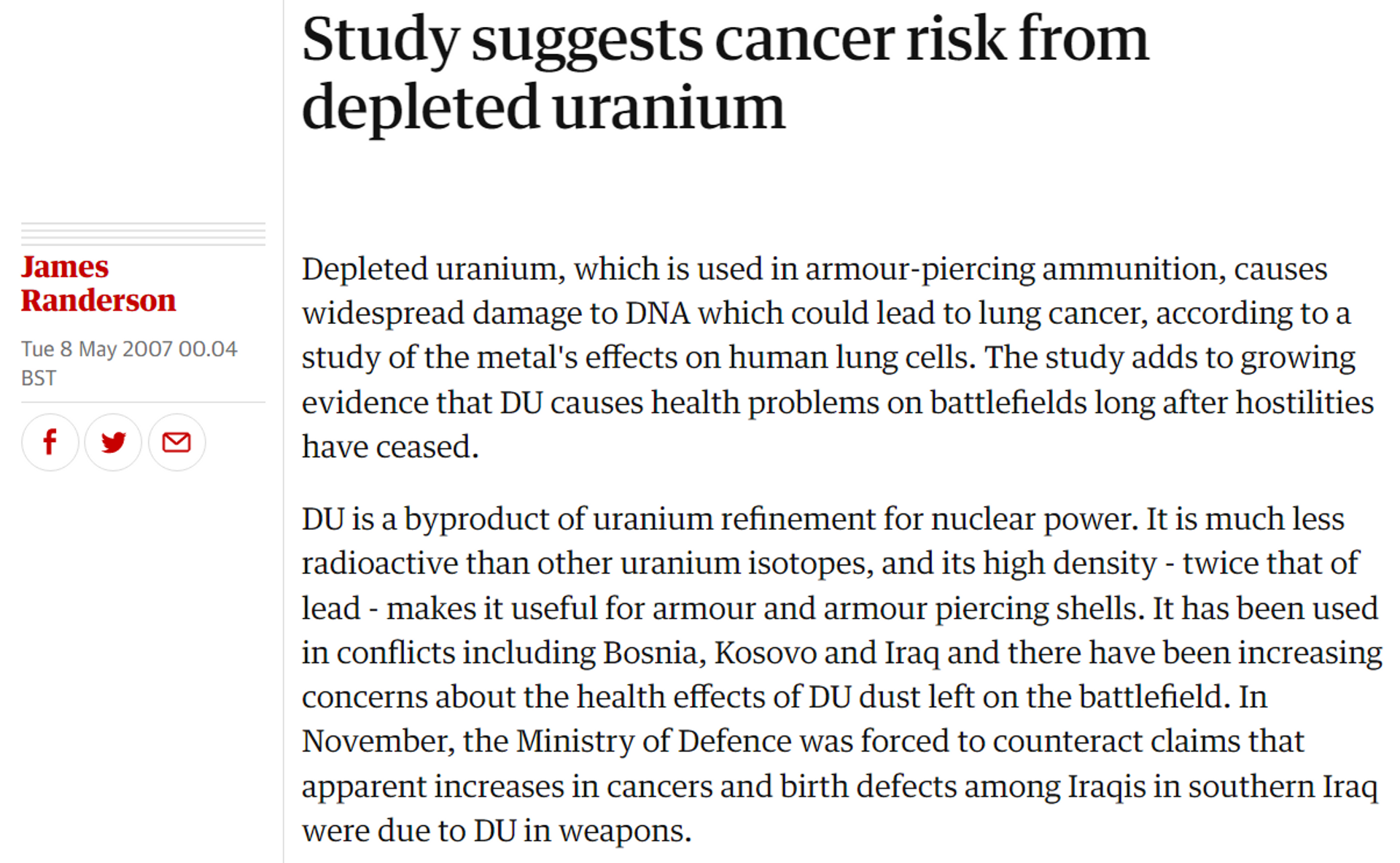
A report in British newspaper The Guardian from 2007 on the health risks associated with radioactive depleted uranium munitions used by the US and other forces in Iraq and the former Yugoslavia
DU is used in high-velocity dart-like projectiles due to its very high density — two-thirds heavier per cubic centimetre than lead — which increases armour penetration, as well as its pyrophoric property of igniting on impact.
They are produced in a range of calibres from the 25mm Bushmaster chain gun fitted to the Bradley infantry fighting vehicle — also supplied to Ukraine — and the 30mm GAU-8 Gatling cannon of the A-10 Warthog close support aircraft, up to those of tank guns like the 120mm L30 carried by the Challenger 2.
DU ammunition was heavily used by US forces and their allies in the 1991 Gulf War, the 2003 invasion of Iraq and the 1999 NATO offensive against Serbia in support of Kosovar separatist militants. Doctors have said the radioactive material — a by-product of spent nuclear fuel — left strewn around the country has caused horrific birth defects and increased rates of cancer.
A study published by the US federal National Institutes of Health in 2021 concluded that the evidence gathered "suggests possible associations between exposure to depleted uranium and adverse health outcomes among the Iraqi population."
Tungsten can also be used as a non-radioactive and less-toxic alternative to DU in armour-piercing projectiles.
Serbian citizens have sued NATO over its use of around 15 tonnes of DU munitions in its war on the Balkan republic, but the US-led alliance has claimed it has legal immunity from litigation.


